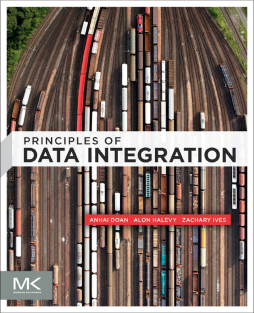
Additional Information
Book Details
Abstract
Principles of Data Integration is the first comprehensive textbook of data integration, covering theoretical principles and implementation issues as well as current challenges raised by the semantic web and cloud computing. The book offers a range of data integration solutions enabling you to focus on what is most relevant to the problem at hand. Readers will also learn how to build their own algorithms and implement their own data integration application.
Written by three of the most respected experts in the field, this book provides an extensive introduction to the theory and concepts underlying today's data integration techniques, with detailed, instruction for their application using concrete examples throughout to explain the concepts.
This text is an ideal resource for database practitioners in industry, including data warehouse engineers, database system designers, data architects/enterprise architects, database researchers, statisticians, and data analysts; students in data analytics and knowledge discovery; and other data professionals working at the R&D and implementation levels.
- Offers a range of data integration solutions enabling you to focus on what is most relevant to the problem at hand
- Enables you to build your own algorithms and implement your own data integration applications
This is the definitive book on data integration technology, written by experts who invented much of the technology they write about. It’s comprehensive, with lots of technical detail very clearly explained. It’s a must-read for anyone involved in the development of data integration solutions.
-Philip A. Bernstein, Distinguished Scientist, Microsoft Corporation
Despite having been with us for decades, data integration remains a challenging, multi-faceted problem. This book does an excellent job of bringing together and explaining its many facets along with the technical solutions that have been developed to date. The authors are three of the field's leading contributors, with a mix of both academic and industrial experience, and their presentation includes examples and manages to make even the more theoretical material accessible to readers. All aspects of modern data integration are covered, including different styles of integration, data and schema matching, query processing and wrappers, as well as challenges posed by the Web and the wide variety of data types and formats that must be integrated today. This book should be a great resource for graduate courses on data integration.
-Michael Carey, Bren Professor of Information and Computer Sciences, UC Irvine
